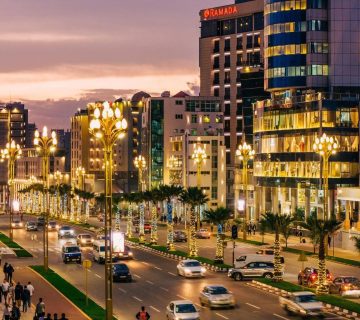Kenya has expressed interest in joining the United Nations Security Council (UNSC) as a non-permanent member for two years – 2021 and 2022. This bid has gained impetus following Kenya’s effective endorsement by African Union (AU) after former won against Djibouti, another interested African state, in a secret ballot that took place in Addis Ababa, on August 22, 2019. Kenya will now be seconded to the UNSC as the AU’s preferred candidate for subsequent election by the UN General Assembly in June 2020. To win this bid, Kenya needs to activate her full diplomatic machinery to marshal maximum international support and avoid antagonizing unnecessarily other organs of the UN system.
Although Kenya is now the preferred candidate for Africa, her main opponent – Djibouti, will continue in the race and challenge Kenya’s AU nomination in 2020. This means that Kenya will not gain automatic ascension to the UNSC, despite the AU backing. Fundamentally, Djibouti is using the current maritime dispute between Kenya and Somalia to downplay Kenya’s candidature and water down Kenya’s commitment to the maintenance of regional peace and security. The dispute is awaiting determination by the International Court of Justice (ICJ), with oral hearings now set to begin on June 8, 2020. ICJ is the principle judicial organ of the United Nations. Djibouti argues that the dispute shows that Kenya lacks the integrity and legitimacy to represent the region at the UNSC. Djibouti also fears that should Kenya ascend to the UNSC, Kenya would use the position to exert pressure on Mogadishu, and possibly undermine stability in Somalia and the wider Horn of Africa region.
The Unresolved Dispute
Somalia sued Kenya over a contentious boundary enclosing a maritime zone of about 100,000 square kilometers in the Indian Ocean. Despite the Court being seized of the matter, Kenya’s commitment to pursue the legal process has been underwhelming. Nairobi prefers an out-of-court settlement of the dispute, and in September 2019, reached out to Mogadishu to consider a negotiated outcome.
While the case could be a litmus test, which will gauge Kenya’s commitment to the maintenance of transnational peace and security in the Horn of Africa region, the claims fronted by Djibouti puts Kenya in a precarious situation, especially considering the force of the international law and the potential interplay of UN politics over the matter. With Djibouti’s determination to undermine Kenya’s push to join the UN’s most powerful organ, it is imperative for Kenya to act wisely and purposely to ensure that the current dispute with Somalia does no taint the good image of Kenya within the international system and thus quash Kenya’s UNSC bid.
UNSC and its Advantages
According to Article 23 (1) of the UN charter, other than ensuring geographical balance and commitment to the United Nations’ mandate, non-permanent members of the Security Council are elected on precedence of their contribution to the maintenance of international peace and security. The duly elected members then join the five permanent (P5) – China, France, Russia, United Kingdom, and the United States of America – who have veto power, to constitute a 15-member Council, charged with the “primary responsibility for the maintenance of international peace and security”.
Kenya has maintained peace and security in the Horn of Africa in several ways. Kenyan troops are part of the African Union Mission in Somalia (AMISOM) who support the fight against the terror and paramilitary insurgency of al Shabab and has also offered immense support toward the facilitation of the political process in Somalia. Kenya has also been on the frontline in supporting peace processes in the region stylised by her critical contribution to the brokerage of the Agreement for the Resolution of Conflict in South Sudan (ARCSS) in 2011, and more recently, giving enormous support toward the implementation of the Revitalised Agreement for the Resolution of the Conflict in South Sudan (R-ARCSS) signed in September 2018. Kenya continues to support extensive humanitarian work. That is, Kenya hosts approximately 500,000 refugees in both Dadaab and Kakuma refugee camps, according to August 2019 UNHCR reports.
Against this backdrop, being a non-permanent UNSC member will be advantageous for Kenya in two critical ways. First, with each member having an effective vote on the decisions of the UNSC, Kenya will hold an integral role in influencing the operations of the UNSC, especially, on matters that engender peace and security in the Horn of Africa region and the African continent at large. This resonates with Kenya’s interests to continue with stabilization and peacebuilding efforts within the Horn of Africa region, considering the ongoing initiatives in Somalia and South Sudan. In light of the current stalemate, and the potential deterioration of foreign relations between Kenya and Somalia, Kenya then, can have a critical voice within the UNSC, as well as an increased opportunity to exploit international mechanisms for ensuring that the diminishing foreign relations do not threaten the preservation of bilateral and regional peace and security.
Secondly, the UNSC seat carries a lot of weight for Kenya considering the current maritime dispute with Somalia. The UNSC provides a good avenue where Kenya can pursue an alternative resolution of the maritime dispute by political means. Apart from the opportunity to elect who sits as judges at the ICJ, the UNSC members reserve the prerogative of determining the existence of threats to peace among nations. The UNSC then advises on actions for peaceful resolution of such disputes and decides where sanctions or military force can be applied. As Kenya contends with the hurdle of defending its position in the case at the ICJ against Somalia, a seat at the UNSC would make Kenya stay a-foot on the matter.
What Should Kenya Do?
With eight months to June 2020, when both the UNSC elections and ICJ oral hearings shall take place, Kenya must work to outdo the claims launched by Djibouti and convince the international community of her commitment to the critical role of maintaining peace and security in the region. To ensure this, Kenya should accelerate her lobby campaigns to receive maximum international support, and enhance compliance with the Court.
Lobby campaigns for Kenya will help neutralize the counter-narrative employed by Djibouti. Kenya needs to intensify her efforts to reach out to the international community for support in the UNSC bid. While the efforts displayed in September 2019 during the United Nations General Assembly are laudable and gainful, Kenya should step up her campaigns for the bid. A crucial way to do this is to highlight her status as a regional hub and home to the largest UN office in Africa, and good peace-supporting legacy in the region to woo international support. Kenya should work with her major international partners and allies such as the Commonwealth countries, Latin America, and European partners to foreground her support for the bid. In addition, to destabilize support for Djibouti, Kenya should revitalize her relations with Francophone and major Arab countries, supposed allies of Djibouti, through targeted diplomatic visits and cooperation in bilateral and multilateral trade. Further, Kenya should use the AU both as a gateway and voice for lobbying across continents.
Considering the case at the ICJ, Kenya should desist from actions that may appear to antagonize or cause actual contempt of the Court. Rather, Kenya should consolidate her legal machinery for effective deployment to the Hague. Since the maritime dispute is also a peace and security issue, it is imperative to underscore that the conduct and attitude of Kenya toward the Court will either build or diminish Kenya’s bid.
Otieno O. Joel is a Research Assistant at the HORN Institute.
Photo: United Nations Security Council members at a past meeting (Photo Credit: UNSC)



